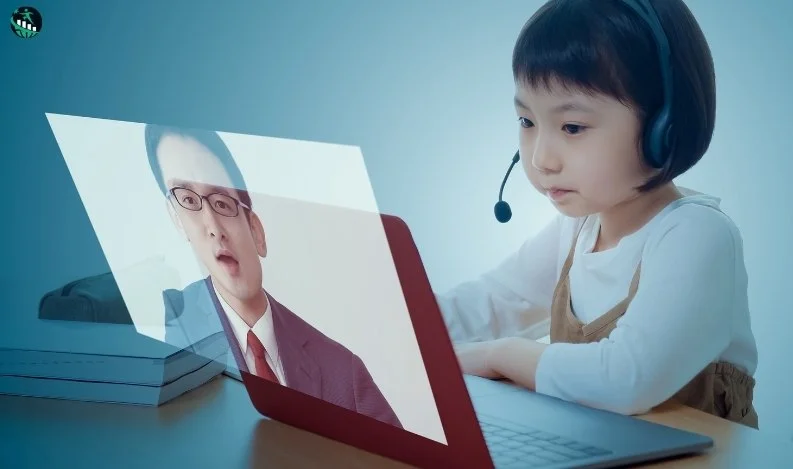
EdTech Innovations: Tools and Apps Revolutionizing Learning in 2024
The world of education is being transformed by technology, and in 2024, EdTech (Educational Technology) innovations are playing a pivotal role in how students learn and teachers teach. With the rapid advancement of AI, immersive learning platforms, and personalized learning apps, education is more engaging, accessible, and effective than ever before. In this blog, we’ll explore some of the most impactful EdTech tools and apps that are revolutionizing learning in 2024 and reshaping the future of education.
1. AI-Powered Learning Platforms
Artificial Intelligence (AI) continues to be a game-changer in education. In 2024, AI-powered platforms are providing personalized learning experiences tailored to each student’s needs, learning style, and pace. These platforms analyze data from student interactions, quizzes, and assignments to adjust content and offer targeted support in real time.
For example, tools like Socratic by Google and Knewton use AI to provide instant answers to student questions, explain complex concepts, and guide learners through problem-solving steps. Adaptive learning systems like DreamBox and Carnegie Learning customize math and reading lessons to ensure that students grasp each concept before moving on. This individualized approach is helping students overcome learning gaps and build confidence in their skills.
2. Gamified Learning Apps
Gamification is one of the most popular trends in EdTech, and in 2024, it’s taking education to the next level. By turning lessons into interactive games and rewarding progress with points, badges, and levels, gamified learning apps make education fun and engaging.
Apps like Kahoot!, Duolingo, and Quizizz are leading the charge, transforming traditional lessons into interactive quizzes, challenges, and competitions. These apps motivate students to practice more and improve their skills while having fun. Whether it’s mastering a new language, learning math concepts, or reinforcing historical facts, gamified learning is making education more immersive and enjoyable.
In 2024, gamified platforms are becoming even more sophisticated, offering real-time feedback, peer collaboration, and personalized learning paths. These elements keep students engaged, while teachers can monitor progress and adapt lessons to meet individual needs.
3. Immersive Learning with AR and VR
Augmented Reality (AR) and Virtual Reality (VR) are no longer just buzzwords—they are becoming essential tools in education. In 2024, AR and VR are enhancing learning experiences by bringing subjects to life in ways that traditional methods simply can’t match.
With AR apps like Google Lens and Merge Cube, students can explore 3D models of everything from the human body to ancient civilizations, right from their devices. VR platforms like Google Expeditions and ClassVR take students on virtual field trips, allowing them to visit historical landmarks, explore underwater ecosystems, or travel through space—all from the classroom.
These immersive technologies are particularly impactful in subjects like science, history, and geography, where students benefit from visualizing complex concepts and experiencing learning in a hands-on way. As the technology becomes more accessible and affordable, AR and VR are set to become mainstream in classrooms across the globe.
4. Collaborative Learning Tools
In 2024, collaboration is at the heart of education. EdTech tools that facilitate teamwork, communication, and project-based learning are essential for both in-person and remote learning environments. Platforms like Google Workspace for Education, Microsoft Teams, and Padlet provide seamless collaboration spaces where students can work together on assignments, share resources, and engage in group discussions.
Additionally, tools like Miro and Jamboard offer virtual whiteboards that make brainstorming, planning, and interactive learning more dynamic. These collaborative tools encourage students to think critically, share ideas, and develop problem-solving skills, all while learning in a connected and engaging environment.
5. Learning Management Systems (LMS) with Enhanced Features
Learning Management Systems (LMS) have been a staple in education for years, but in 2024, they are more powerful than ever. LMS platforms like Canvas, Moodle, and Schoology are offering enhanced features such as integrated AI, analytics, and personalized learning paths.
These systems provide a central hub where teachers can create courses, assign homework, grade assignments, and track student progress. For students, LMS platforms offer a streamlined way to access lessons, complete tasks, and stay organized. With the integration of AI, these platforms can now recommend resources, adapt learning paths based on performance, and even provide real-time tutoring.
LMS platforms in 2024 are increasingly mobile-friendly, allowing students to learn on the go, whether they’re using a smartphone, tablet, or laptop. This flexibility is making education more accessible and convenient for diverse learning environments.
6. Language Learning and Global Collaboration
Language learning apps have become incredibly popular, and in 2024, they are more interactive and culturally immersive. Apps like Duolingo, Babbel, and Rosetta Stone continue to lead the way with AI-driven lessons that adapt to the learner’s pace and preferences. These apps now offer gamified practice sessions, real-life conversational practice, and even community challenges that keep learners engaged.
Beyond language learning, global collaboration platforms like PenPal Schools and Empatico are connecting students worldwide. These tools allow students from different countries to collaborate on projects, exchange ideas, and learn about each other’s cultures. This cross-cultural interaction is fostering global citizenship and helping students develop communication skills that are essential in a connected world.
Conclusion:
The EdTech landscape in 2024 is rich with innovation, offering tools and apps that cater to the diverse needs of today’s learners. From AI-powered platforms and gamified learning to immersive AR/VR experiences and collaborative tools, technology is transforming education into something more interactive, personalized, and engaging. As these innovations continue to evolve, they are not just enhancing the learning experience—they are shaping the future of how education is delivered, accessed, and enjoyed.
Whether you’re a student, teacher, or lifelong learner, embracing these EdTech innovations can open up new possibilities for growth and success in the digital age. The future of education is here, and it’s more exciting and accessible than ever before.
Also Read:-



Recent Comments: